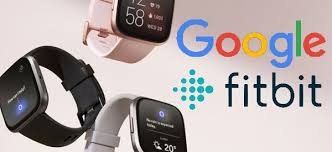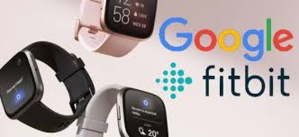The effort of Alphabet unit Google to purchase Fitbit has hit a hurdle in Europe as the antitrust regulator of the European Union has initiated a probe into the deal that is worth $2.1 billion. The deal is Alphabet’s effort to make a dent in the wearable technology market that is dominated by Apple and Samsung.
The launch of the investigation by the European Commission was made despite pledges last month made by Google of not using any of the user data that it will also acquire along with the fitness tracker app for advertising purposes to try and dissuade competition concerns off regulators.
The pledge by Google about data usage was not enough to allay its worries, the EU antitrust enforcer said.
“The proposed transaction would further entrench Google’s market position in the online advertising markets by increasing the already vast amount of data that Google could use for personalisation of the ads it serves and displays,” the Commission said. It noted that the area that would get affected by the deal would the online search and display advertising services and ad tech services where there is rampant use of analytics and digital tools for targeted digital advertising.
The EU antitrust regulator said that one of the apparent advantages in online advertising is the data that is gathered through wrist-worn wearable devices. It added that such information and data would provide an advantage to Google for devising personalizing ads in its search engine that would reduce opportunities for competing for its rivals. And that would ultimately lead ot higher prices for advertisers and publishers.
Focus of the probe will also be on digital healthcare and whether the deal will reduce the ability of Google’s rivals in wearables to function with the Android smartphone operating system of Google that is the dominant mobile phone operating system across the world.
A decision to clear or block the deal will be taken by the Commission by December 9.
Competition in the wearable segment would be increased because of the combination of hardware of Google and Fitbit and the deal would increase completion for the segment leaders including Apple, Samsung, Xiaomi and Huawei, Google said.
“This deal is about devices, not data. We’ve been clear from the beginning that we will not use Fitbit health and wellness data for Google ads,” Rick Osterloh, senior vice president for devices and services, said in a statement.
“As we do with all our products, we will give Fitbit users the choice to review, move or delete their data.”
Healthcare providers, wearables rivals and privacy advocates have however criticized the deal.
According to data from market research firm International Data Corp, as of the end of the first quarter of 2020, only about 3 per cent share of the global wearable market is owned by Fitbit which is miniscule compared to a market share of 29.3 per cent of market leader Apple, and much lower than other competitors such as Xiaomi, Samsung and Huawei.
(Source:www.reuters.com)
The launch of the investigation by the European Commission was made despite pledges last month made by Google of not using any of the user data that it will also acquire along with the fitness tracker app for advertising purposes to try and dissuade competition concerns off regulators.
The pledge by Google about data usage was not enough to allay its worries, the EU antitrust enforcer said.
“The proposed transaction would further entrench Google’s market position in the online advertising markets by increasing the already vast amount of data that Google could use for personalisation of the ads it serves and displays,” the Commission said. It noted that the area that would get affected by the deal would the online search and display advertising services and ad tech services where there is rampant use of analytics and digital tools for targeted digital advertising.
The EU antitrust regulator said that one of the apparent advantages in online advertising is the data that is gathered through wrist-worn wearable devices. It added that such information and data would provide an advantage to Google for devising personalizing ads in its search engine that would reduce opportunities for competing for its rivals. And that would ultimately lead ot higher prices for advertisers and publishers.
Focus of the probe will also be on digital healthcare and whether the deal will reduce the ability of Google’s rivals in wearables to function with the Android smartphone operating system of Google that is the dominant mobile phone operating system across the world.
A decision to clear or block the deal will be taken by the Commission by December 9.
Competition in the wearable segment would be increased because of the combination of hardware of Google and Fitbit and the deal would increase completion for the segment leaders including Apple, Samsung, Xiaomi and Huawei, Google said.
“This deal is about devices, not data. We’ve been clear from the beginning that we will not use Fitbit health and wellness data for Google ads,” Rick Osterloh, senior vice president for devices and services, said in a statement.
“As we do with all our products, we will give Fitbit users the choice to review, move or delete their data.”
Healthcare providers, wearables rivals and privacy advocates have however criticized the deal.
According to data from market research firm International Data Corp, as of the end of the first quarter of 2020, only about 3 per cent share of the global wearable market is owned by Fitbit which is miniscule compared to a market share of 29.3 per cent of market leader Apple, and much lower than other competitors such as Xiaomi, Samsung and Huawei.
(Source:www.reuters.com)






